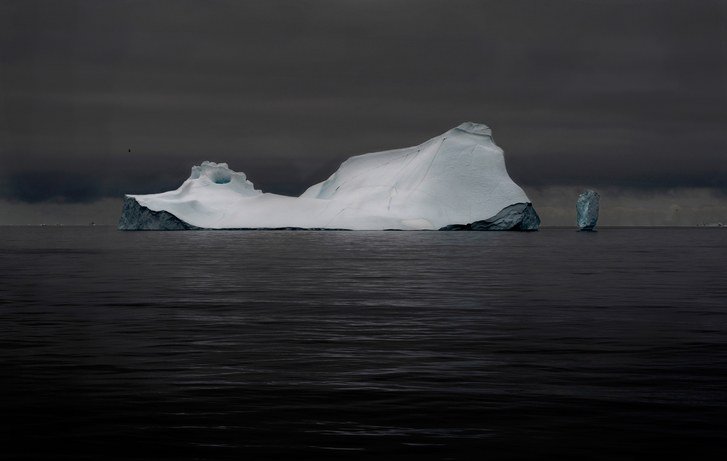The world has seen environmental protests, negotiations and even gut-wrenching reports to finally acknowledge that climate change is super real. But 2019 in specific had opened our eyes to some devastating climate emergency matters which showed that if we don’t act upon it, we are doomed.
Here are a few events that took place due to climate change in 2019.

1. Antarctica lost around 315 billion tonnes of ice making it the biggest iceberg to break in 50 years.
An iceberg named D28, measuring 1,636 square kilometres in area was broken off the Amery Ice Shelf. This is a little smaller than Scotland’s Isle of Skye.
The new D28 iceberg (~1582km²) that recently calved from Amery ice shelf 🇦🇶is nicely shown in the latest @CopernicusEU #sentinel1 satellite imagery 🛰️. @helenafricker pic.twitter.com/SLHWpqHFWP
— Stef Lhermitte (@StefLhermitte) September 30, 2019
2. The month of July 2019 was the hottest on record for the planet.
Worldwide, July was 1.71 degrees Fahrenheit (.95 degrees Celsius) warmer than the average of 56.9 degrees Fahrenheit.
July 2019 was the hottest month ever recorded #ClimateStrike pic.twitter.com/gHxYd13wl1
— NowThis (@nowthisnews) September 20, 2019
3. More than 200 reindeers were found dead in the Arctic due to starvation.
Due to the climate crisis, there is a high rate in mortality. This is twice as fast in the Arctic as compared to the rest of the world.
Climate change is making it rain much more. The rain falls on the snow and forms a layer of ice on the tundra, making grazing conditions very poor for animals,
-The Guardian
4. Delhi saw its second coldest December since 1901 and its coldest day in over a century.
The National Capital has been going through ‘severe cold conditions’. The maximum recorded temperature this season was 9.4 degrees Celsius and the minimum reached as low as 2.4 degrees Celcius.
Delhi: Dense fog at Rajpath this morning. Temperature of 2.4°C was recorded in Delhi at 6:10 am, today. pic.twitter.com/mHpEsaaUcj
— ANI (@ANI) December 28, 2019
5. In July-August 2019, over 1,300 people died due to heavy rainfall and floods.
Due to episodes of heavy, intense and unprecedented rainfall, 1,300 people died in just two months as compared to 1,562 monsoon-related deaths last year between July-October.
Global warming is a reality and Himalayas are not untouched by its impact but local factors in an area increases the impact of climate change. As a result, hills in India are getting warmer faster as compared to the plains.
-Mongabay-India
6. Three rivers, four water bodies, five wetlands and six forests completely dried up in Chennai leading to severe water crisis.
Chennai depends on the northeast monsoon for the bulk of its rainfall between October and December. However, in 2018, the northeast monsoon failed and the state recorded a deficit of 55% rainfall. A study conducted by NITI Aayog also mentioned that 21 cities in India including Delhi, Bengaluru and Hyderabad.
7. Due to severe bush fires in the country, Australia experienced its hottest day on record this year.
The ongoing devastating bush fires have already burned more than 3.6 million hectares of the country so far. It has not only caused the destruction of flora and fauna but due to the same reason, the overall temperature of the country has increased.The temperature reached as high as 40.9 Celcius.
Australia’s climate is increasingly influenced by global warning and natural variability takes place on top of this background trend.
-BBC
➡️ Australia! Is! On! 🔥🔥🔥
— Zero Hour (@ThisIsZeroHour) December 23, 2019
➡️Tuesday was its hottest day ( 40.9°c)
➡️The fires carbon footprint is more than half of it’s annual emissions
➡️An estimated 2,000,000 hectares of land have been burnt down so far pic.twitter.com/yVHeMjCTgi
8. The last remnants of Iceland’s Okjökull melted out of existence this year.
The scientists think its the first of many to come. Okjökull lost its glacier status in 2014, but it finally disappeared this year. People of Iceland also had a mourning ceremony for it.
The death of Okjökull, a little glacier in Iceland, is a warning https://t.co/CDYRQNkFVt
— The Economist (@TheEconomist) September 21, 2019
9. The Great Barrier Reef’s health deteriorated to ‘very poor’.
The world’s largest coral reef system downgraded due to rising sea temperatures. There is widespread habitat loss and degradation affecting fish, turtles and seabirds.
While the reef is already experiencing the impacts of climate change, its future is one we can change.
-The Guardian
The Great Barrier Reef was already in bad condition, but now one of the most complex ecosystems on our planet has been officially downgraded: from ‘poor’ to ‘very poor.’ https://t.co/SjLvXv5W4c
— CNN (@CNN) September 3, 2019
10. 2% of Switzerland’s glacial mass has melted this year.
The 2% glacial mass is enough to fill a 25 m swimming pool for every Swiss citizen.
‘Glaciers make climate change visible.’ Scientists estimate that 2% of Switzerland’s glacial mass has melted this year alone — enough to fill a 25m swimming pool for every Swiss citizen https://t.co/T5MgqKesNH
— Financial Times (@FinancialTimes) December 27, 2019
11. Rajasthan was covered with a thin layer of ice due to unusual hailstorm.
Reportedly, this bizarre weather occurance caused significant damage to crops in the region and also caused sustained injuries to animals and birds.
This is not HP or UK, this is Rajasthan 🥺 pic.twitter.com/8IyTc7eHIl
— Mondler ❤️ (@TweepNextDoor_) December 12, 2019
Our children won’t be able to witness a lot of nature’s miracles if we don’t act now.

















